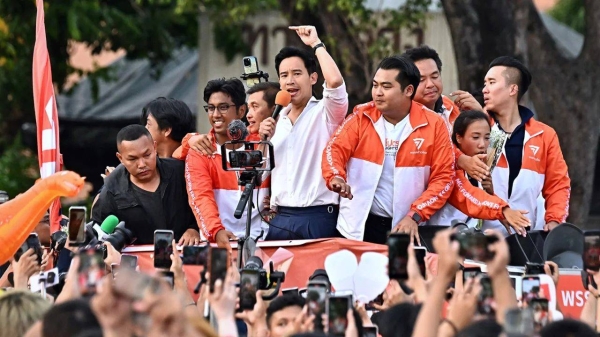
The Brazilian president, Luiz Inácio Lula da Silva, has made clear he does not yet accept Nicolás Maduro’s claim to have been re-elected as Venezuela’s president, and has suggested fresh elections or a coalition government as potential solutions to the country’s intensifying political crisis.
Maduro’s claim to have won Venezuela’s 28 July vote – despite compelling evidence that he was heavily beaten – has plunged the South American country into uncertainty and spooked regional governments who fear possible conflict and the consolidation of a dictatorship on their doorstep.
Venezuela’s opposition – which has produced proof that its candidate, Edmundo González, trounced Maduro – plans to return to the streets on Saturday for fresh protests despite a harsh government crackdown that has seen more than 1,300 people detained and more than 20 killed.
In an interview with Brazilian radio on Thursday, Lula said Brazilian and Colombian diplomats were exploring possible ways of defusing the crisis but admitted “the political situation is deteriorating in Venezuela”, as were Brazil-Venezuela ties.
Brazil has stopped short of recognizing González’s claim to have won the election, as countries including Argentina, Uruguay and the US have done, but clearly its government has misgivings over Maduro’s widely doubted claim to victory.
Challenged over whether he accepted Maduro’s claim to be president-elect, Lula answered: “Not yet. Not yet. He knows he owes an explanation to Brazilian society and to the world. He knows this.”
Lula said he did not think it right for one country’s president to give opinions about another president’s policies. Asked during an interview with the broadcaster Rádio T whether he was “shilly-shallying” over an election Maduro is widely suspected of stealing, Brazil’s leftwing leader said he did not want to react in a “passionate or hasty” manner.
But Lula did question why detailed election results had not been released and pointedly noted that Maduro had sent election data to “his supreme court” for analysis. Lula insisted that those results needed to be published by a “trustworthy” body. But Maduro has so far refused to release a full breakdown of results from from every polling station, as has traditionally been done in Venezuela, including under Maduro’s mentor Hugo Chávez.
Lula offered two possible solutions to the escalating crisis, as Venezuela’s opposition prepared for its latest anti-Maduro marches on Saturday and the government prepared rallies of its own.
One was creating a national unity government including figures from the opposition. “There are lots of people in my government who didn’t vote for me and I brought everyone together to take part in my government,” said Brazil’s 78-year-old leader, who was re-elected in 2022 after narrowly beating the far-right incumbent Jair Bolsonaro.
Lula believed the second potential solution was for Maduro – who remains president until the next leader’s inauguration in January, 2025 – to arrange another election.
“If he has good sense … perhaps he could even call new elections, establish a criteria for the participation of all candidates, create a non-partisan electoral committee … and allow observers from the whole world in to see the elections,” Lula suggested.
Maduro and close allies have publicly rejected all talk of repeating July’s vote.
“There will not be another election here because Nicolás Maduro won,” one of the president’s most powerful allies, Diosdado Cabello, said during his night-time television show on Wednesday night, calling such suggestions “stupidity”.
Pro-democracy activists and opposition leaders have also criticised calls for fresh elections or a coalition government given their conviction that González won.
“The election already happened,” González’s most important backer, the opposition leader María Corina Machado, told journalists during an online press conference.
Tamara Taraciuk Broner, the director of the rule of law programme at the Inter-American Dialogue thinktank, also questioned such ideas.
“There has to be a transition to a different government, because there were elections. They were horribly unfair and even so the opposition won. So I don’t see an option of … a co-existence government. [Maduro] lost the election,” Taraciuk said.
“No one would go to Lula and say: ‘You know, actually you should create a co-existence government with Bolsonaro.’ No one would even think of that, right? So why would they ask Edmundo González to do it?” Taraciuk added.
Later on Thursday, Colombia’s leftwing president, Gustavo Petro, who spoke with Lula on Wednesday, also contemplated a possible solution on social media, in what appeared to be a coordinated move.
“A political solution for Venezuela that brings peace and prosperity to its people depends on Nicolás Maduro,” Petro wrote, suggesting Maduro look to Colombian history for inspiration.
In 1958, Colombia’s two main political parties – the conservatives and the liberals – sealed a power-sharing pact known as the “Frente Nacional” (National Front) after a decade of horrific political violence known as La Violencia that saw an estimated 200,000 people killed.
Petro said that if “used temporarily” Colombia’s experience could help bring about “the permanent solution” for Venezuela.












